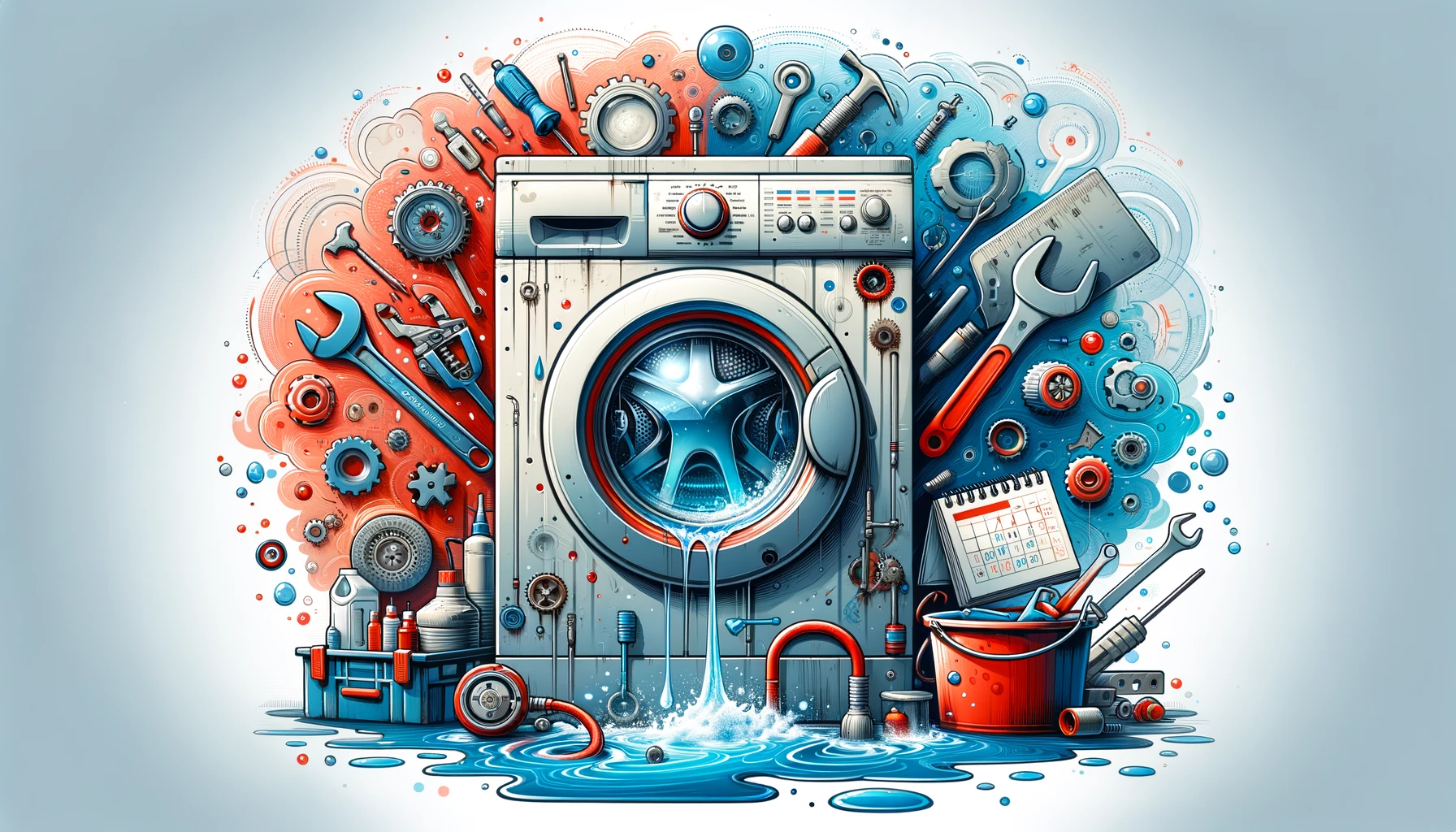
11 Clear Signs Your Washing Machine Needs Repair or Replacement
Understanding Your Washing Machine’s Lifespan
The average lifespan of a washing machine is about 10 to 15 years, depending on the brand, model, and how well it’s maintained. Knowing the age of your appliance is crucial in determining whether it’s more cost-effective to repair or replace it.
Unusual Noises
Loud, unusual noises during operation are a clear signal something’s amiss. Grinding, banging, or squeaking sounds could indicate loose or worn-out parts that need attention.
Water Leaks
Water on the floor around your washing machine is a sign of potential leaks. These can stem from hoses, pumps, or seals and often necessitate immediate repair to prevent water damage and mold growth.
Incomplete Cycles
If your washing machine consistently fails to complete cycles, it could be experiencing issues with its timer, control board, or water supply, indicating a need for professional diagnostics.
Drum Not Filling or Draining Properly
Problems with filling or draining are usually related to water inlet valves or drainage systems. Such issues can disrupt your laundry routine and might require part replacements.
Inefficiency in Cleaning
When clothes come out as dirty as they went in, or with soap residue, it’s a sign your machine isn’t performing correctly. This could be due to clogged filters or malfunctioning water jets.
Excessive Vibration
A washing machine should operate smoothly. Excessive shaking or vibration could indicate an unbalanced load or more serious mechanical issues.
Detergent Dispenser Problems
Clogs or mechanical failures in the detergent dispenser affect the machine’s ability to clean clothes and can lead to buildup and blockages.
Power Failures
Frequent power failures during use can signal electrical issues, from faulty outlets to internal component failures.
Control Panel Malfunctions
A non-responsive control panel or one that displays error codes frequently might require a reset or a more significant repair.
Door Lock Issues
For front-loading machines, a malfunctioning door lock can prevent the machine from starting its cycle, a safety feature that may need professional repair.
The Impact of Age on Performance
As washing machines age, their efficiency and performance can decline, leading to increased energy use and poorer wash quality.
Signs of Wear and Tear
Physical signs of wear, such as rusting or leaking tubs, are clear indicators that your washing machine may be nearing the end of its useful life.
Analyzing Repair Costs
Before deciding on repairs, consider the cost relative to the age and overall condition of your machine. Repairs exceeding 50% of the cost of a new machine are generally not recommended.
When to Consider Replacement
Replacement may be the more economical choice for older machines or when facing expensive repairs that don’t guarantee extended lifespan.
The Long-Term Savings of Upgrading
Modern washing machines offer improved energy efficiency and advanced features that can save money on utility bills and provide a better laundry experience.
Recycling Your Old Washing Machine
When replacing, consider environmentally friendly disposal options. Many retailers and municipal programs offer recycling services.
Eco-Friendly Replacement Options
Look for machines with high energy and water efficiency ratings to reduce your environmental impact and save on utilities.
Features to Look For in a New Washing Machine
Consider capacity, efficiency ratings, and specific features that meet your laundry needs, such as steam cleaning or programmable settings.
Understanding Energy Efficiency Ratings
Energy Star-rated appliances can offer significant savings on energy costs and are designed to minimize environmental impact.
Common Fixes for Minor Issues
Some issues, like unbalanced loads or clogged filters, can be easily resolved at home with basic troubleshooting.
When to Call a Professional
For more complex problems, or when in doubt, it’s best to consult a professional appliance repair service to avoid further damage.
Regular Cleaning and Maintenance Tips
Maintaining your washing machine can extend its lifespan. Regularly clean the drum, filters, and dispensers, and ensure proper loading to prevent unbalanced cycles.
Avoiding Overloading
Overloading your washing machine can cause significant wear and damage over time. Follow the manufacturer’s guidelines for load sizes.
Summary of Key Indicators
Recognizing the signs that your washing machine needs attention can help maintain its efficiency and extend its lifespan. Whether it’s unusual noises, water leaks, or performance issues, timely intervention can prevent costly repairs or the need for early replacement.
Conclusion
Identifying the signs that your washing machine needs repair or replacement is crucial for ensuring efficient and effective laundry operations. Regular maintenance, prompt repairs, and understanding when to upgrade can save you money and hassle in the long run. As technology advances, newer models offer greater efficiency and features, making replacement an attractive option for an aging appliance. Ultimately, the decision to repair or replace depends on the specific issues, the age of your machine, and your budget.




